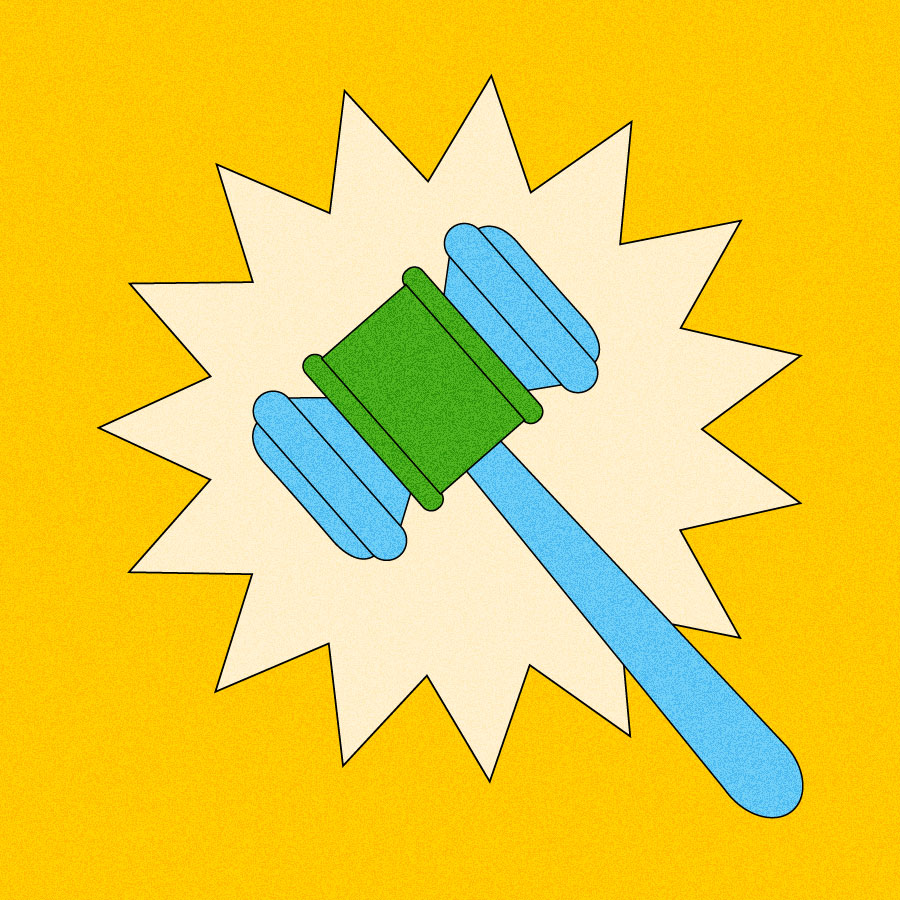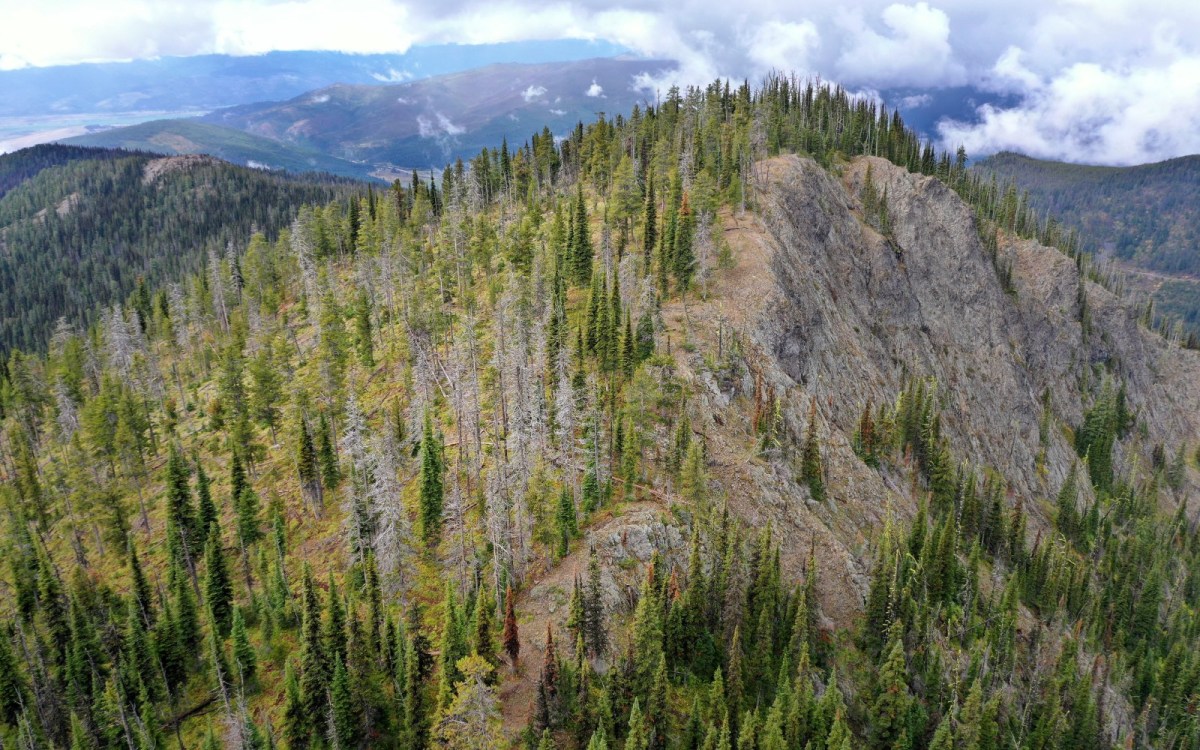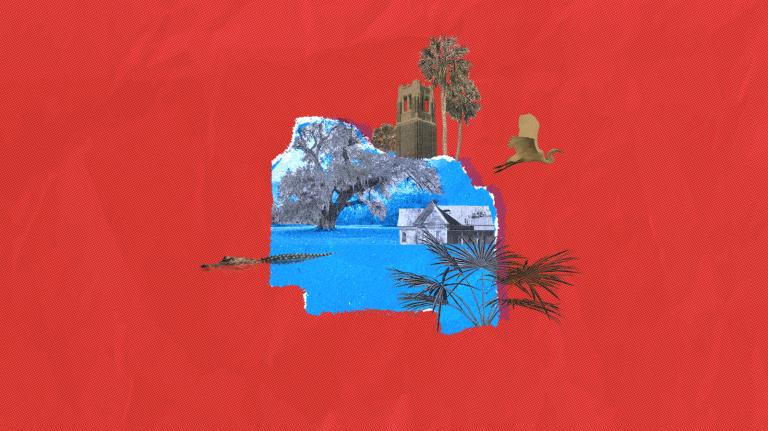Hello, and welcome to Part 2 of our series on personal action in the face of climate change. (Check out Part 1 here, looking at why individual action is a fraught concept, and how individuals are amplifying impact via life milestones.)
Today’s story, from news and politics fellow Akielly Hu, shares the perspective of one young person who witnessed the effects of climate change on the places she loved and decided to take what some might call a drastic measure — suing her state government.

The vision
“We’ve tried the quiet way before and there haven’t been any changes in 60 years. Now it’s time to think bigger, speak louder.”
Claire Vlases, one of 16 young people suing the state of Montana
The spotlight
On Monday, a trial began for the climate lawsuit Held v. Montana at a state district court in Helena. In March 2020, 16 youth plaintiffs filed suit against the state, alleging that by enacting policies that promote fossil fuel production, the state government violated their constitutional right to a healthy environment. (Montana is one of three states that has established a right to a “clean and healthful” environment in its state constitution.)
The case is not the first time young people have taken legal action to demand that their government take the climate crisis seriously. The plaintiffs in Montana, organized by a nonprofit law firm called Our Children’s Trust, are joining a growing cadre of citizens suing their governments for their failure to act on climate change. Many of these cases — from Canada to Mexico to South Africa — identify citizens’ constitutional rights to life, security, or a healthy environment, and aim to hold governments accountable for protecting those enshrined rights.
But the Montana case will make history as the first constitutional climate case to go to trial in the U.S. (A federal case, Juliana v. United States, also organized by Our Children’s Trust, will soon become the second.)
From June 12–23, the youth plaintiffs will testify in court, sharing stories of how climate change has affected their personal lives and why they’re asking the court to declare Montana’s fossil fuel policies unconstitutional.
[Read more about the arguments in the case]
“In some ways, our generation feels a lot of pressure, kind of a burden, to make something happen because it’s our lives that are at risk,” Rikki Held, the named plaintiff in the case, told the Montana Free Press. She added that she and her fellow plaintiffs were compelled to take action out of both a love for their home state and a desire to hold it accountable. “Montana is a big emitter of fossil fuels and is contributing to climate change. I know it’s a broader global issue, but you can’t not take responsibility.”
Another plaintiff, Claire Vlases, echoes those sentiments. Growing up in Bozeman, she spent much of her time outdoors, teaching ski lessons, cycling through Glacier National Park, and running on her high school’s cross-country team. But melting snowpack, receding glaciers, and extreme heat and smoke disrupted her favorite activities, sparking newfound awareness of the severity of the climate crisis.
Vlases, now 20 years old and studying computer science at Claremont McKenna College in California, says she’s been feeling the weight of preparing for the trial. “If Montana as a state is able to recognize its unconstitutional promotion of fossil fuels and hopefully down the line actually change that,” she says, “that would be a huge motivating factor for young people across the state to not feel like all hope is lost when it comes to environmental protection.”
Grist spoke to and emailed with Vlases ahead of the trial about what it’s been like preparing for the case, what she hopes it will achieve, and what she’s learned about the role individuals can play in influencing policy-level change. Her comments have been edited for length and clarity.
![]()
Q. What inspired you to get involved with this lawsuit?
A. I grew up in Bozeman, and growing up here, I just loved the environment and had a passion for nature. When I was in middle school, I raised a bunch of money for solar panels for my middle school. And since then, I developed a taste for climate activism.
In high school, I learned about kids that are suing the federal government for promoting fossil fuels unconstitutionally. I was in awe of their actions, so when I heard about something similar happening in my home state of Montana, I reached out to the organization to see if I could become involved. I went through an interview process before officially becoming a plaintiff in the case.
Q. What have you experienced during the last three years leading up to trial? How has your life changed?
A. The last three years have been a whirlwind of activism, learning, and personal growth.
Waiting for the lawsuit to reach trial has been both agonizing and invigorating. There have been moments of frustration, as we faced delays, legal hurdles, and the slow pace of the judicial system. However, each passing day fueled my determination to see justice served. The support from fellow activists, friends, and even strangers has been a source of strength during the long wait.
This journey has transformed my life in profound ways. I’ve become more resilient, learning to navigate the complex world of bureaucracy and courtroom procedures. I’ve connected with experts, scientists, and fellow activists, broadening my knowledge and network. But above all, I’ve witnessed the power of unity and collective action, as our movement gained momentum and captured the attention of the media and the public.
Q. Most people don’t get a chance to directly challenge their government’s policies on climate change. Would you describe this as an empowering experience?
A. Definitely. I joined the lawsuit when I was 17, so I couldn’t vote yet. When I was in high school, I helped found the Solar Club and we wrote a couple of different bills to try and get solar legislation passed in Montana. But it was never very successful — they never even made it out of committee. So it’s really empowering to be a young person and actually get an opportunity to challenge our government through the judicial branch.
Q. How would you describe the importance of taking personal action when it comes to climate change?
A. I think it’s important to find something that you’re passionate about. For me, it’s protecting the environment and taking a stance on it. A lot of people, especially young people, don’t think that there’s much of an opportunity there. But if there is a community that is supportive enough of your endeavors, there’s a lot that you can do as a person.
Individual action goes hand-in-hand with government action. That’s one huge reason why I’m on this lawsuit, because I’ve done as much as I think I can do as one person. Now I believe it’s time for my government to take action, too.
Q. Have you heard from any other young people who have been inspired by what you and your fellow plaintiffs are doing?
A. It’s hard to know for sure. I do get emails every couple of months from people asking me about my work, but mostly that’s for my solar panel stuff.
In high school, when I finished the solar panel project, people reached out to me a lot and there were solar clubs made in other schools. I think it’s a lot easier to see change happening for young people, by young people, in your own community. If it’s your neighbor or your friend, then it’s a lot more motivating to try it yourself. And so I hope young Montanans can see the work that we’re doing on this lawsuit and find that a motivating factor for them.
Q. It’s interesting that the center of this case is Montana’s constitutional right to a healthy environment. Would you say that’s a source of pride or empowerment for you and other climate advocates in the state?
A. It’s hugely empowering that there even is an Article IX in our constitution. I think everyone in Montana, no matter their politics, lives here because of the natural landscape and what Montana offers us. I find it hugely inspiring that our government is willing to recognize that that is a crucial part of being Montanan.
But I find it really unsettling that even though we have that recognition in our constitution, there are laws in place that aren’t following that. Calling attention to the article in this lawsuit and to the laws that are unconstitutional means that we’re able to actually recognize what’s really important — what Montanans really value — and then act on it.
Q. Will you be testifying at the trial?
A. Yes, I think so.
Q. How are you feeling about it?
A. I feel excited to be able to voice my opinions and that I have an opportunity to be heard. It’s hard to think that your opinions can actually make change. So I’m really looking forward to that.
Also, I’m a little nervous. I’ve never done that before. But I hope that what I say matters to the people listening.
I was talking to my sister today so that she could ask some questions so I could get in the right mindset for this interview. And she was like, “Why would you sue? I feel like that’s really drastic.” I was thinking about that a little bit. And I think taking a drastic measure of action is the only way that we’re going to get heard. I think young people across the state are interested in knowing what we can actually do, and what lengths people will go to feel heard. And we’re excited to see the result of the trial.
Q. What’s next for you after this trial and after college? Do you see climate work being part of your future?
A. I’m not sure where I want to go with my career. I hope to use my computer science [background] for environmental work. But I’ll continue to be an environmentalist and speak out against anything that I believe is unconstitutional for the rest of my life.
— Akielly Hu
More exposure
- Read: more about the ins and outs of the Montana case (Grist)
- Read: about a case brought by the island nation of Vanuatu to the International Court of Justice in The Hague, seeking a ruling from the court on the obligation national governments have to act on climate change (Grist)
- Read: about climate litigation across the globe in 2023 (The Guardian)
- Explore: a map of states that are considering environmental-rights amendments in 2023 (National Caucus of Environmental Legislators)
See for yourself
What are some ways you’ve stood up for your own right to a clean and healthy environment — whether legally protected or not? Reply to this email to tell us how you’ve raised your voice, called out injustice, or otherwise held the powers that be accountable for protecting people and ecosystems.
A parting shot
This photo shows a stand of living and dead whitebark pine trees at a research and restoration site near the Snowbowl ski area outside Missoula, Montana. Whitebark pines have been particularly threatened by climate-related perils, including greater wildfire risk and pest outbreaks. (Earlier this year, we covered a climate plan developed by the Confederated Salish and Kootenai Tribes on the Flathead Reservation in Montana, which included restoring whitebark pine populations.)




